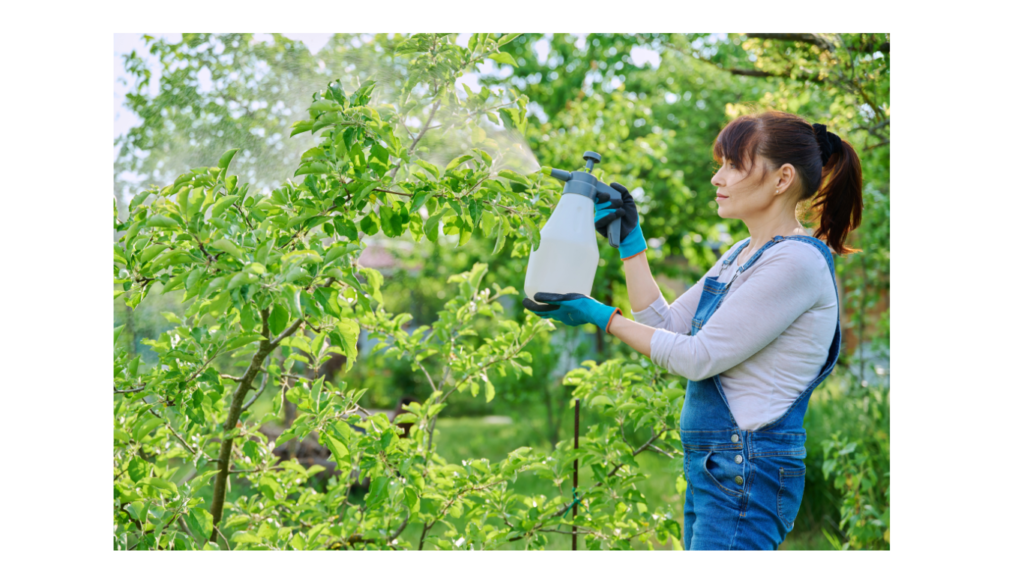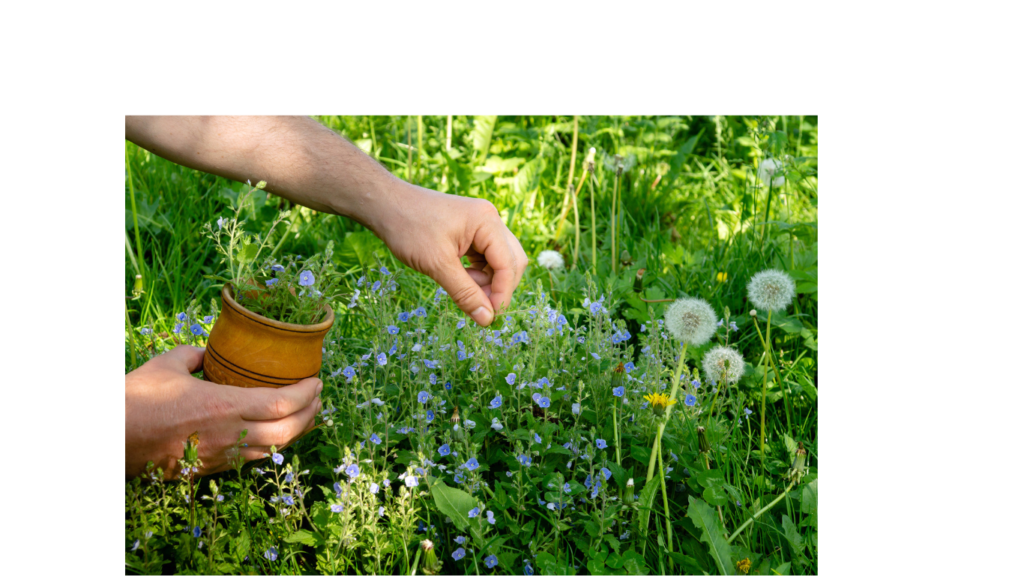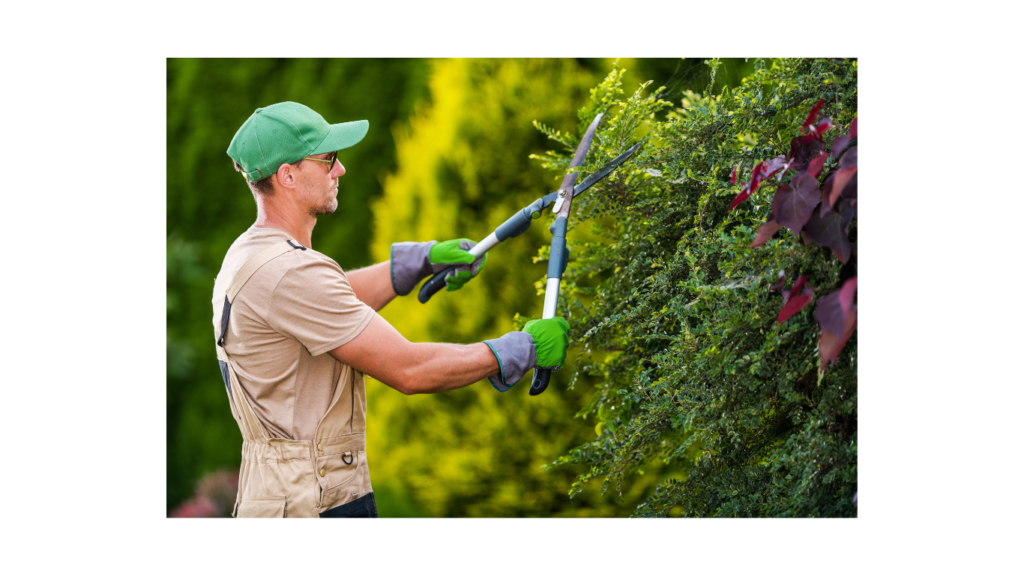Well-maintained gardens are spaces that offer pleasure and well-being, but they can also be subject to various types of pests. Often, these pests, such as insects and even small animals, can destroy plants, cause aesthetic damage, and even compromise plant growth. Although using chemical pesticides is a quick solution, this option poses serious environmental and health risks. For this reason, more and more gardeners are opting for natural pest control methods. In this article, we will explore various strategies and techniques that allow for safe, effective, and eco-friendly pest control in the garden, without harming the environment.
1. The Importance of Controlling Pests Naturally
With the increasing awareness about environmental issues, the use of synthetic pesticides is being questioned more and more. These products, in addition to contaminating the soil, water, and air, can severely affect local wildlife, killing beneficial insects such as bees and ladybugs, and even other animals living in the garden. In residential areas, chemical products can pose direct risks to the health of residents and pets.
Adopting natural pest control methods is a smart way to keep your garden healthy and balanced without harming the surrounding ecosystem. Not only does this protect the biodiversity of your garden, but it also ensures that your plants and flowers grow in a healthy manner, without the interference of toxic substances. Additionally, many natural techniques are low-cost and easy to apply, making the process more accessible for everyone.
2. Understanding Common Pests in the Garden
To effectively combat pests, the first step is to understand who they are. Pests vary depending on the type of plant and the garden’s location, but there are some that are common in many types of vegetable gardens and ornamental gardens. Each pest has specific behaviors and ways of feeding, which directly affect how we can control them.
- Aphids: Small soft-bodied insects that feed on the sap of plants. They are especially attracted to growing plants such as flowers and vegetables. Aphids can transmit diseases and, when feeding, leave behind a sticky substance called “honeydew,” which can attract fungi such as sooty mold.
- Scale Insects: These insects attach themselves to the leaves and stems of plants, secreting a sticky substance. Although they don’t feed directly on the plant, their secretion can weaken the plant and make the area more susceptible to other infections.
- Slugs and Snails: These pests are common in gardens, especially in humid areas. They feed on leaves, particularly tender and young ones, leaving visible holes and damaging the plant’s development.
- Ants: While ants don’t directly feed on plants, they protect pests like aphids in exchange for the sweet secretion produced by these insects. Additionally, ants can damage the soil, affecting plant roots.
- Mites: Mites are extremely small and are often invisible to the naked eye. They feed on the sap of plants, causing spots and discoloration on leaves, which can lead to plant death.
Identifying pests is essential to choose the most effective control strategy. Sometimes, the same plant can be attacked by different pests, requiring a combination of approaches.
3. Benefits of Using Natural Methods for Pest Control
Adopting natural solutions for pest control is not only an environmentally friendly alternative but also offers several benefits for the gardener and the ecosystem. Below, we highlight the main benefits:
- Lower environmental impact: By using natural methods, you avoid the use of toxic substances that can harm natural resources such as soil and water. Additionally, these methods do not harm local wildlife, preserving beneficial species like bees and birds.
- Health and safety: By eliminating the use of chemicals, the garden becomes safer for residents, especially children and pets. Natural products do not leave toxic residues on plants, meaning you can harvest fresh food without worrying about ingesting harmful substances.
- Biodiversity preservation: The use of natural pesticides favors ecological balance in the garden. Many of these methods encourage the presence of natural predators, such as ladybugs and frogs, which help control pests more effectively.
- Cost reduction: Many natural methods can be made at home with simple and inexpensive ingredients, making pest control more accessible. For example, using garlic, pepper, or vinegar to create repellent solutions is an affordable way to keep pests away.
- Sustainability: By adopting eco-friendly practices in your garden, you’re contributing to a more sustainable lifestyle, helping to conserve natural resources and create a more harmonious and balanced space.
4. Natural Methods for Pest Control in the Garden
Now that you understand the benefits of natural pest control, it’s time to explore the main strategies that can be used to combat these problems in your garden. Let’s look at the most common and effective solutions.
Repellent Plants
One of the simplest and most effective ways to keep pests away is by growing plants that have repellent properties. Many plants contain natural compounds that insects cannot tolerate. Some options include:
- Garlic: The strong odor of garlic repels various pests, such as aphids, flies, and snails. It can be grown in the garden or used in homemade preparations, such as spray repellents.
- Basil: In addition to being a culinary herb, basil is effective at controlling flies and mosquitoes. Its strong fragrance is undesirable to many insects.
- Lavender: Lavender flowers are not only fragrant but also excellent at repelling ants, aphids, and mosquitoes. Furthermore, their vibrant color attracts beneficial pollinators.
- Marigolds: Besides their beauty, marigolds have a substance that repels pests like nematodes, aphids, and whiteflies, helping to maintain the health of nearby plants.
These plants act as a natural barrier, making it difficult for pests to settle in your garden.
Beneficial Insects
An effective strategy for pest control is to encourage the presence of beneficial insects that feed on harmful pests. This creates a natural cycle of control where pests are kept at manageable levels. Some examples include:
- Ladybugs: Ladybugs are natural predators of aphids, scale insects, and other small pests. They can be attracted with the presence of plants like fennel and dandelion.
- Long-necked ants: While common ants can be harmful, certain predatory ant species are excellent at controlling harmful insects such as aphids and larvae.
- Garden beetles: These beetles are known for feeding on slugs, snails, and other crawling insects that can harm plants.
- Bees: Although they are not predators of pests, bees are essential for pollination. Creating a favorable environment for bees not only helps control pests but also boosts your garden’s productivity.
These methods create a balanced environment and encourage natural pest control.
Traps and Physical Barriers
Using physical barriers is an effective way to prevent pests from accessing your plants. Here are some options:
- Sticky traps: These traps are useful for catching flying insects such as flies and mosquitoes. Placing them in the most affected areas reduces the pest population.
- Protective nets: Fine mesh nets can prevent insects like mosquitoes, flies, and butterflies from laying eggs on plants, as well as protect against larger animals like birds or rodents.
- Adhesive tapes: These tapes can be used around tree trunks or garden edges to capture pests attempting to infiltrate the plants.
These solutions provide a physical defense against pests, helping to keep them away from your plants.
Essential Oils and Natural Extracts
Essential oils are powerful allies in pest control. They can be applied directly to plants or soil to keep a variety of insects at bay. Some options include:
- Neem oil: This oil is one of the most effective natural pesticides. It acts as a repellent and also disrupts the life cycle of pests, preventing them from reproducing.
- Peppermint oil: The strong scent of peppermint oil repels ants, flies, and other insects. It can be diluted in water and sprayed on affected plants.
- Pepper extract: Pepper is effective at controlling pests like slugs and crawling insects. Prepare a strong extract and apply it to the leaves and around the base of the plants.
These oils can be used in various forms, such as sprays or diluted solutions, and are highly effective against pests like flies, ants, aphids, and slugs.
Homemade Preparations
Homemade preparations provide an inexpensive and simple way to combat pests. Some of the most popular recipes include:
- Soap and water solution: Mix water with mild soap to create a solution that kills aphids, scale insects, and mites. Spray the plants regularly to keep pests at bay.
- Vinegar and water: A vinegar and water solution can be used to fight fungi and repel insects. This method is particularly effective against mold and smaller pests.
- Garlic or onion infusion: By boiling garlic or onion, you create a natural repellent that can be applied to leaves or soil to keep slugs, snails, and other insects away.
These preparations are easy to make and can be applied directly to plants, offering immediate protection.
5. Using Biopesticides and Living Organisms in Pest Control
In addition to traditional methods, biopesticides are becoming an increasingly popular option for those looking to control pests naturally. Biopesticides are natural compounds derived from living organisms, such as bacteria, fungi, and nematodes, that target pests without harming the rest of the ecosystem.
- Beneficial bacteria: Bacillus thuringiensis is an example of a bacterium that targets larvae of insects like cabbage moths and other types of caterpillars without harming plants, animals, or humans.
- Nematodes: These microscopic worms attack soil pests, such as insect larvae, nematodes, and even certain types of ants. They are highly effective in gardens and vegetable plots.
- Pathogenic fungi: Certain fungi can be used to combat pests like whiteflies and ants. They infect and kill pests without affecting plants or other beneficial organisms.
These biological methods offer an effective and targeted solution for various pests, helping to maintain the balance of your garden.
6. Preventive Techniques: Keeping Your Garden Pest-Free
Preventing pest infestations is always more effective than dealing with them once they cause damage. Some preventive techniques include:
- Crop rotation: Changing the location of certain vegetable species is a great way to prevent the buildup of pests that feed on specific plants.
- Proper watering: Correctly watering plants and avoiding excess moisture can prevent fungal growth and create favorable conditions for your plants.
- Regular cleaning: Removing dead leaves and diseased plants prevents pests from spreading to other parts of the garden.
7. Attracting Natural Predators to Your Garden
Attracting natural predators can be an excellent way to control pests without direct intervention. Some ways to attract these allies include:
- Natural refuges: Provide shelters like stones, logs, and native plants so predators can hide during the day and hunt pests at night.
- Water sources: A small fountain or water hole will attract amphibians, such as frogs and toads, which feed on insects, as well as birds that hunt flying insects.
By creating a diverse environment, you encourage the presence of these allies and contribute to natural pest control.
8. When to Intervene and How to Monitor Pests
Regular monitoring of the garden is essential to detect problems before they become severe. Early intervention can prevent pests from spreading, protecting your plants. Use traps, inspect the leaves, and look for signs of infestation, such as spots or visible damage.
9. Careful Use of Natural Methods: Challenges and Limitations
Although natural methods offer several advantages, there are challenges. They typically require more patience and constant monitoring for effective results. Additionally, in cases of large infestations, natural methods may not be as fast-acting as chemical pesticides.
10. Conclusion: Sustainability in Pest Control in the Garden
Controlling pests naturally is an excellent way to keep your garden healthy and balanced, without resorting to harmful chemicals. While there are challenges, the environmental benefits and safety for health make natural methods a highly advantageous choice. Adopting these practices not only helps protect your garden but also contributes to a more sustainable future.



